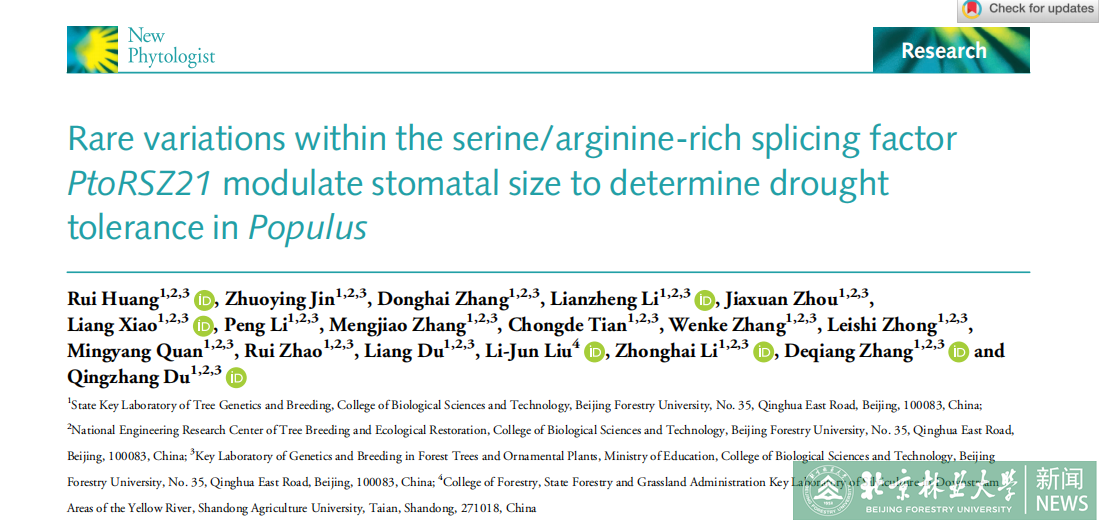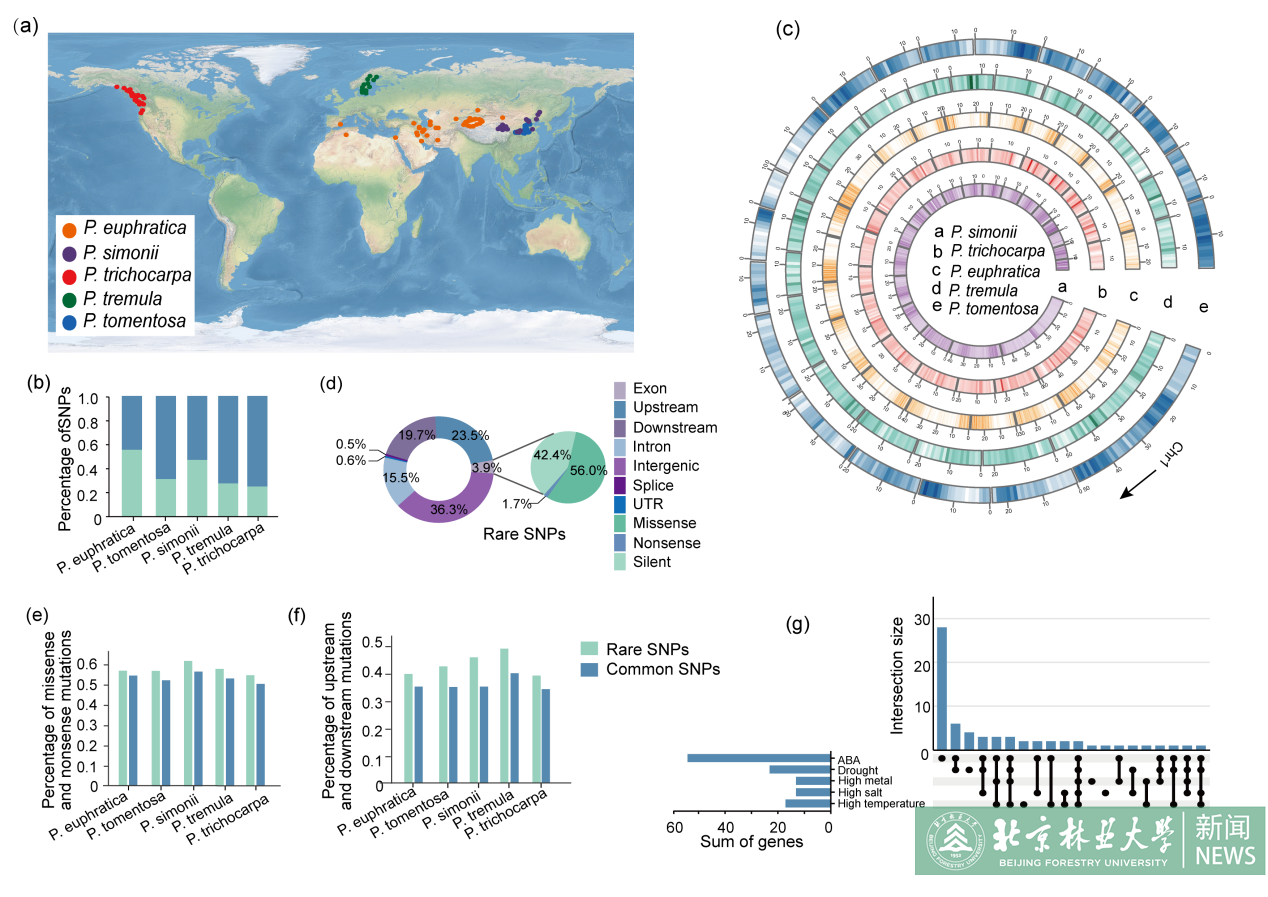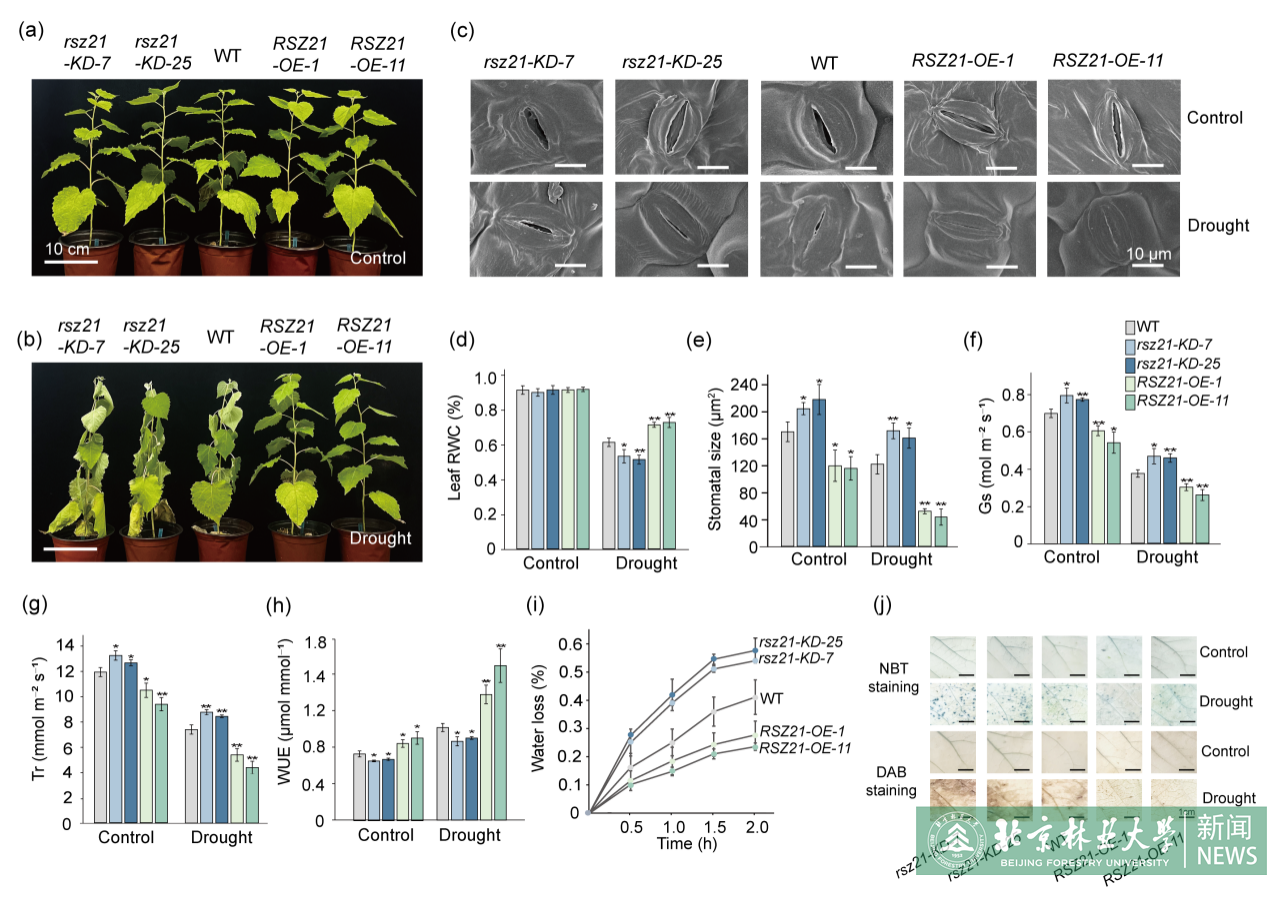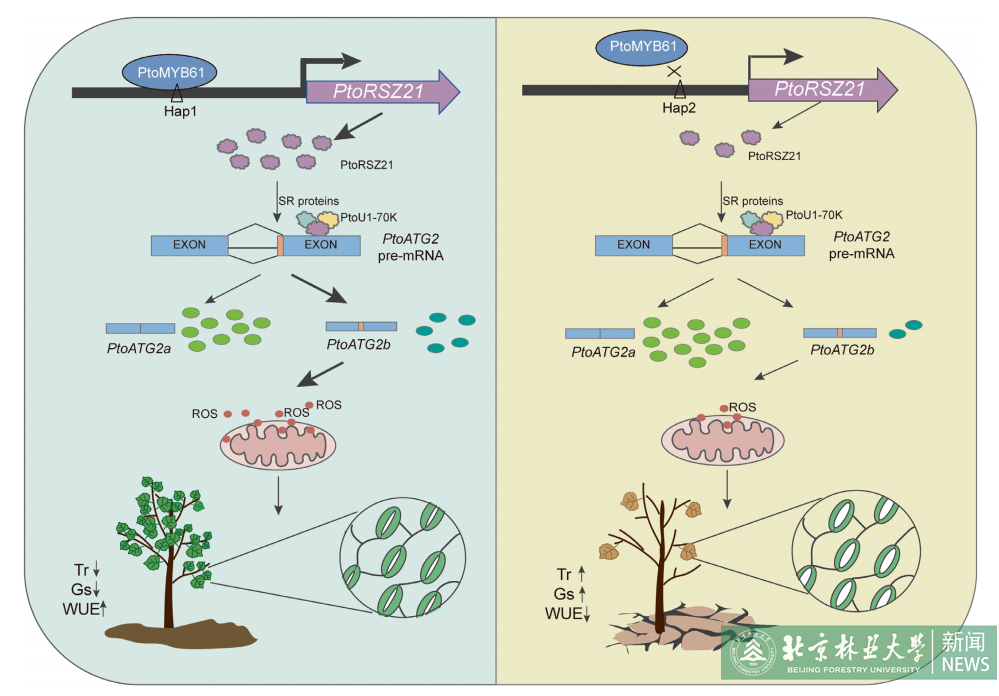Latest news
Professor Du Qingzhang and his team from National Key Laboratory for Forest Genetics and Breeding, College of Biological Sciences and Biotechnology, have recently published a paper in the prestigious journal New Phytologist. The study, titled "Rare variations within the serine/arginine-rich splicing factor PtoRSZ21 modulate stomatal size to determine drought tolerance in Populus", focuses on unique genetic variations found in poplar species across the globe. These rare variations, occurring in less than 5% of populations, were analyzed using quantitative and molecular genetics combined with molecular biology. The team discovered that rare variants in the PtoRSZ211 promoter region affect gene expression and drought resistance by reducing binding affinity to the transcription factor PtoMYB61. This reveals the critical role of the splicing factor PtoRSZ21 and its rare variants in regulating SS and drought adaptability, offering insights into new breeding strategies for woody plants.

● Rare variants contribute significantly to the 'missing heritability' of quantitative traits. The genome-wide characteristics of rare variants and their roles in environmental adaptation of woody plants remain unexplored.
● Utilizing genome-wide rare variant association study (RVAS), expression quantitative trait loci (eQTL) mapping, genetic transformation, and molecular experiments, we explored the impact of rare variants on stomatal morphology and drought adaptation in Populus.

● Through comparative analysis of five world-wide Populus species, we observed the influence of mutational bias and adaptive selection on the distribution of rare variants. RVAS identified 75 candidate genes correlated with stomatal size (SS)/stomatal density (SD), and a rare haplotype in the promoter of serine/arginine-rich splicing factor PtoRSZ21 emerged as the foremost association signal governing SS. As a positive regulator of drought tolerance, PtoRSZ21 can recruit the core splicing factor PtoU1-70K to regulate alternative splicing (AS) of PtoATG2b (autophagy-related 2). The rare haplotype PtoRSZ21hap2 weakens binding affinity to PtoMYB61, consequently affecting PtoRSZ21 expression and SS, ultimately resulting in differential distribution of Populus accessions in arid and humid climates.
● This study enhances the understanding of regulatory mechanisms that underlie AS induced by rare variants and might provide targets for drought-tolerant varieties breeding in Populus.

Professor Du Qingzhang is the corresponding author of this paper, with doctoral candidate Huang Rui as the first author. Professor Zhang Deqiang, who leads the molecular breeding team, offered extensive guidance on the research design. The study also involved Associate Professor Quan Mingyang, Associate Professor Zhao Rui, Associate Professor Du Liang, Professor Li Zhonghai from Beijing Forestry University, and Professor Liu Lijun from Shandong Agricultural University, alongside several graduate students.

This work was supported by the STI 2030-Major Projects (no.: 2023ZD0407105), the Fundamental Research Funds for the Central Universities (no.: QNTD202305), the Project of the Natural Science Foundation of Beijing Municipality (no.: 6212021), the Key Research and Development Project of Zhejiang Province (no.: 2021C02054), the National Natural Science Foundation of China (no.: 31872707, 31500550, and 31872671), the Fok Ying Tung Education Foundation of China (no.: 171020), and the 111 Project (no.: B20050).
Paper link: http://doi.org/10.1111/nph.19934
Written by Huang Rui
Translated and edited by Song He
Reviewed by Yu Yangyang












